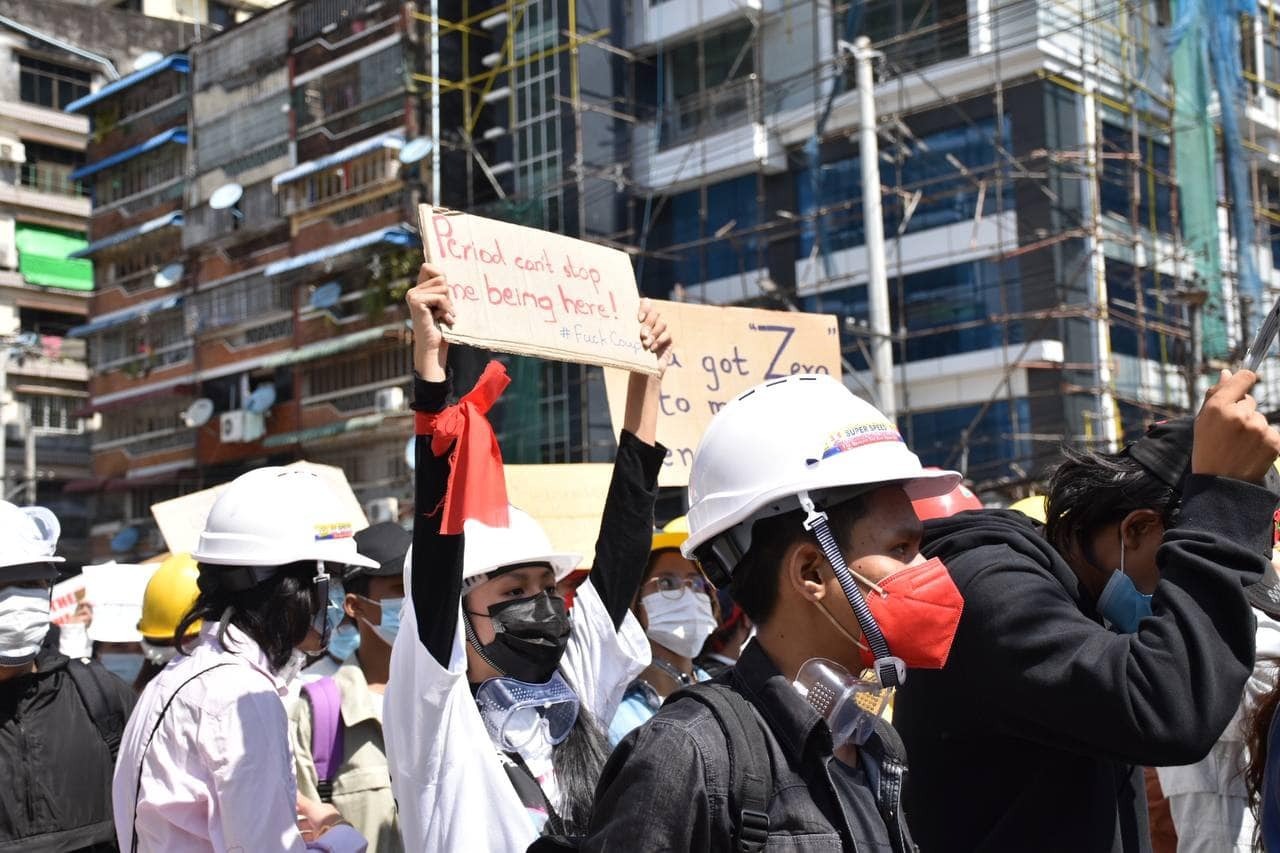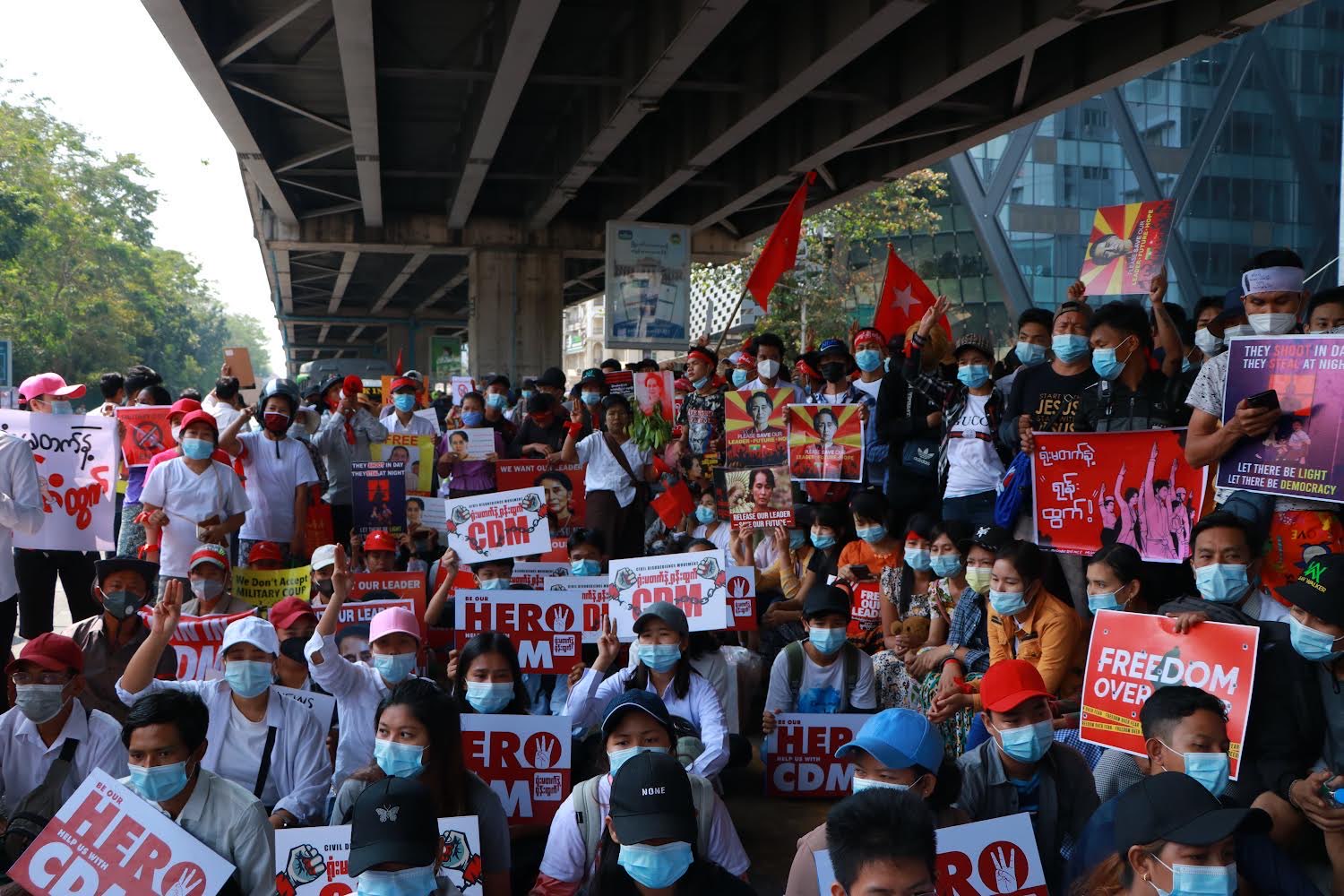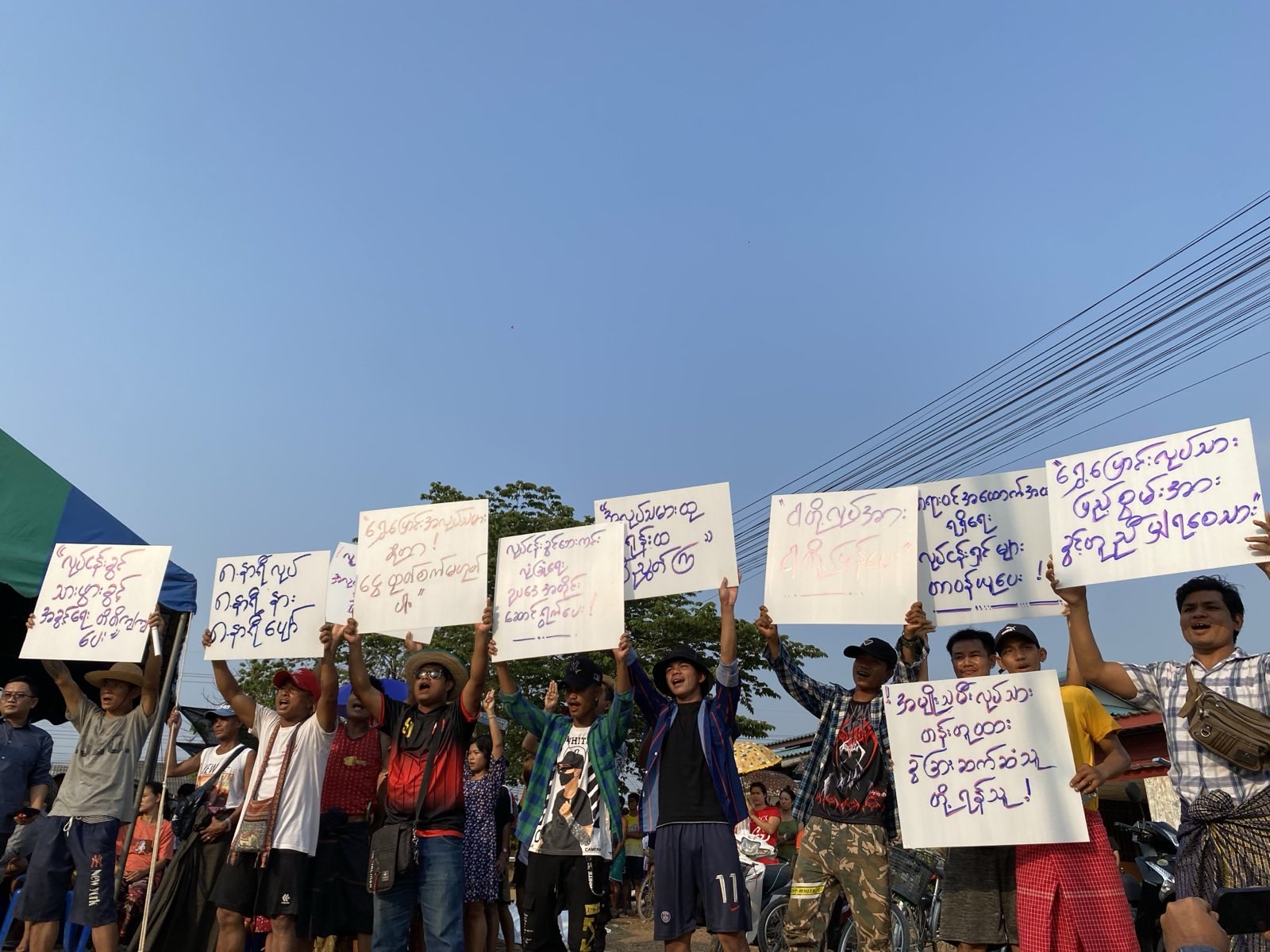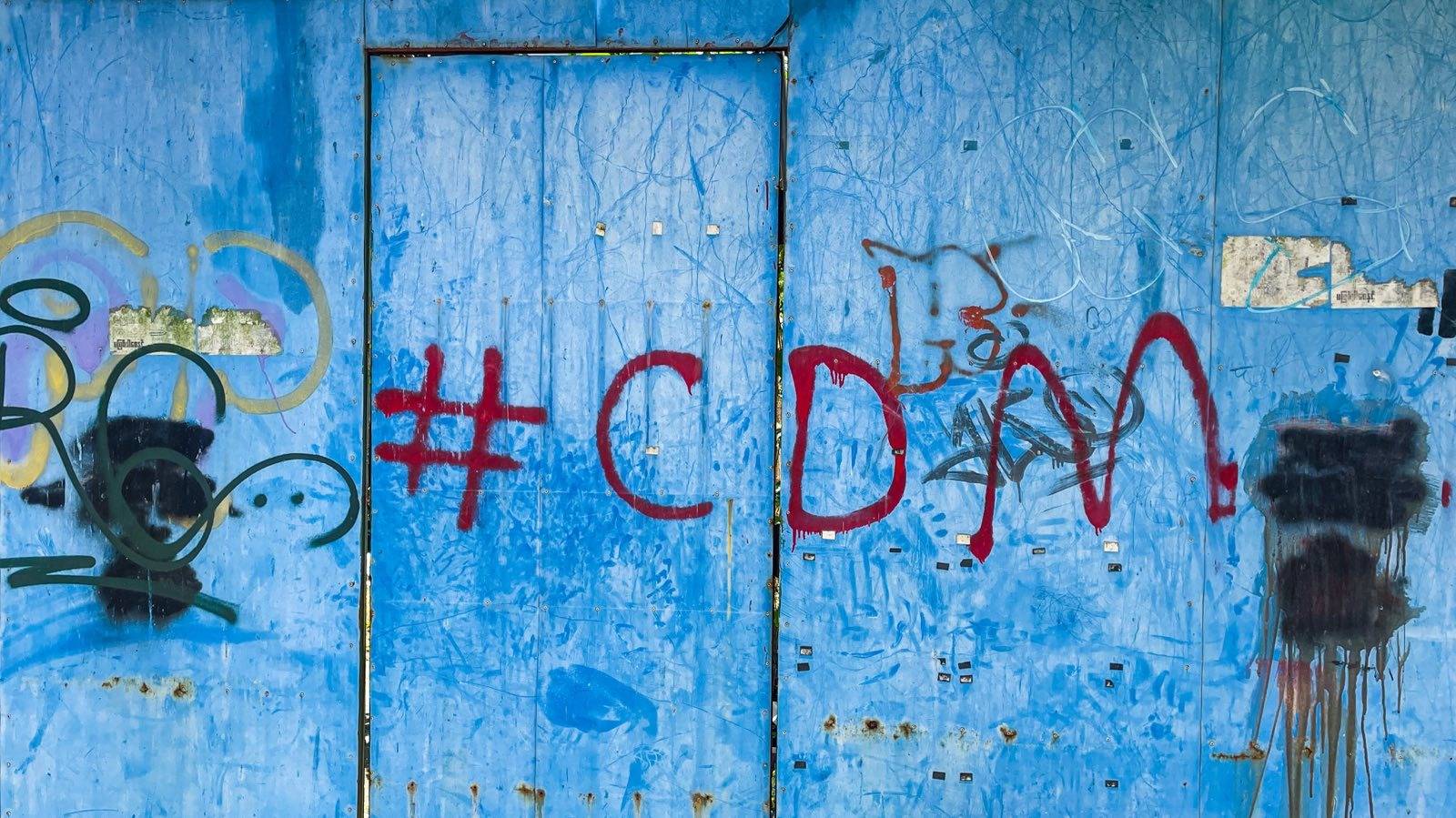Minds of the Movement
An ICNC blog on the people and power of civil resistance
by Yin Lae AungOctober 31, 2024
As the youngest daughter in my family, my parents had always been concerned about the risks of my involvement in activism. While protesting as a student in my home country of Myanmar, I faced pressure from male protesters who suggested that, as a woman, I should prioritize my safety and stay away from frontline strikes.
So, the phrase "Dare to Cross or Cross to Dare" resonated deeply with me when I was forced to flee Myanmar in late 2022 due to my nonviolent activism against the military regime. Arrests and threats pushed me to cross the river separating Myanmar and Thailand under dangerous circumstances. Crossing at night, evading Thai authorities, and navigating through border smugglers, I left behind my country and the safety I had once known—not to mention my family, my friends and many of my fellow activists.

Civil Disobedience Movement, Myanmar. Credit: Thaw.
We resist!
Born into the Shan ethnic group, my family moved from a rural town in upper Myanmar to Yangon in 2013. By the time I attended the University of East Yangon, I was involved in student activism, advocating for academic freedom and student rights. The 2021 military coup shifted my focus toward democracy, sparking street protests to restore democracy. I engaged in resistance efforts by supporting youth-led protests and demonstrations in the streets of Yangon. Like many other students in Myanmar, I joined the Civil Disobedience Movement (CDM) by refusing to study education under the military regime, labeled as “Military Slave Education.” Of course, this was all before I was forced to flee to Thailand in late 2022…
Prior, when I was participating in the CDM from inside Myanmar in 2021, we made noise with pots and pans, engaged in street protests, declined to pay taxes and boycotted government-sponsored lotteries and businesses linked to the military. Civil servants refused to work under military authority. Myanmar youths mobilized various forms of resistance, including digital activism such as “Click to Donate, “Blood Money Campaign”. Youth artists contributed to the movement through their work, producing resistance songs and artwork. I raised funds by selling my paintings to support friends in prison with food and medicine. Painting became more than a hobby; it turned into a form of activism, showing our resilience in challenging times.
After the junta’s violent crackdown on peaceful protesters just weeks after the coup, large-scale demonstrations became too risky. Instead, our generation, “Gen Z,” adapted by organizing flash mob protests. These smaller, quicker actions helped us avoid the brutal military forces. However, the military targeted flash mobs, and in September 2022, my comrades were violently arrested in Yangon. As we chanted, “Our heads are bloody but unbowed,” we resisted even more heavily against the oppressive regime. Despite the risks, the flash mobs continue today as a symbol of our unyielding resistance.

Forced displacement to borderlands

Rangoon Voice-Cast produces a monthly chronicle (the first page of one such chronicle above) and authors exposés for platforms managed by trade unions or independent journalist groups. They had to close their social media accounts due to security issues. Credit: Rangoon Voice-Cast.
After the strike group I was part of was targeted, the authorities obtained my personal information, including my address. This led to searches and arrests at my home, where my elderly parents live. I narrowly escaped and hid in various locations around Yangon. We often had no food as going outside was dangerous, and we lived in constant fear of arrest. Nights were the worst, with security forces conducting house inspections and arresting dissidents. After several friends were arrested, I began receiving threatening phone calls aimed at silencing me and my group. They used my gender to amplify the fear, warning me that I was the last one left and threatening severe harm, including rape during interrogation if I was caught. These threats were intended to terrify me and stifle my activism against the military's oppression. While overwhelming, this fear highlighted the lengths to which the regime would go to break us.
After six months of hiding and several close calls, I realized that staying in Myanmar was no longer safe. By late 2022, many, including myself, were forced into risky, informal migrations to avoid arrest, often becoming undocumented in the process. I had no choice but to leave without informing my parents or saying goodbye to my friends. After relocating to Thailand, I continued to face difficulties. Like many others from Myanmar, I struggled to obtain legal documents, which restricted my movement and made it difficult to find work. Without proper paperwork like my academic transcript and passport, pursuing education became nearly impossible. Bureaucratic obstacles made it harder to access opportunities. I also faced challenges such as finding safe housing, navigating language barriers, and dealing with mental health issues, including feelings of isolation. Surviving day-to-day became my priority, but the impact on my mental health grew worse.
Even though I couldn’t continue my formal education from Thailand, I took this as a place-based education where I learned from my experiences and stood in solidarity with Myanmar migrant workers who face labor rights violations and wage exploitation. From Thailand, in December 2022, I co-founded Rangoon Voice-Cast (RVC), a platform advocating for marginalized communities in urban Yangon. We document and speak out against violations, particularly the exploitation of garment workers, especially young women migrating from rural areas (check out one of our recent examples here). RVC collaborates with local groups, trade unions, student unions, etc. to promote human rights and democratic values. As a small group from Myanmar, facing armed conflict, political crises and human rights violations, including the Rohingya genocide, we focus on addressing inequalities affecting female workers and youth.

Feminism and the revolution
Today, I think back to the Myanmar Spring Revolution and how it has sparked powerful women-led movements advocating for gender equality. According to the Women's League of Burma report, women comprised more than two-thirds of the protesters in the aftermath of the coup. Women and girls played key roles as medics in conflict zones and supported displaced populations, primarily women and children. Despite facing systemic violence, they have emerged as prominent leaders in the resistance and social movements against gender-based violence. In the Civil Disobedience Movement, women employed creative tactics like hanging sarongs, underwear, and red sanitary pads to exploit soldiers' superstitions, slowing down military advances and giving protesters more time.
It is worth recalling the February 2021 seamstress strike here, which marked a turning point in the feminist movement within the broader revolution. Many of these women were migrant laborers, facing economic exploitation and gender oppression, yet they remained unshaken. Their courage reflected the struggle of all Myanmar women who refused to be silenced by the junta's violent repression. Together, we fought—and continue to fight—for a democratic Myanmar and a society that upholds gender equality, where women’s voices are no longer marginalized.

Credit: KMThu.
Crossing to dare...
My activism now from outside Myanmar has enhanced my research and journalism skills, advanced my activism and understanding of societal struggles. One book's words noted, “A word is not necessarily what it means, but rather who said it, and when.” In this way, I remain committed to my community in a country with a long history of dictatorship and ongoing human rights violations.
Yin Lae Aung
As a student activist and researcher, Yin Lae focuses on displacement, youth activism, worker rights, gender studies and education. After the 2021 coup in Myanmar, she continued organizing protests, supporting youth and amplifying marginalized voices through Rangoon Voice-Cast (RVC).
Read More